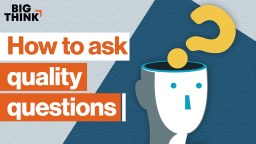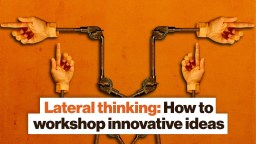DAVID EPSTEIN: One of the most important and influential modern musicians still shows up in the backgrounds of Hollywood blockbusters like The Matrix and hit video games like Bioshock, and yet his name isn't as well known as it probably should be.
Django Reinhardt was a Roma musician, born in Belgium in 1910. He lived, then, in an area of France called La Zone, which actually was where cesspools were emptied from the city. But he grew up surrounded by music. So Roma caravans, there was music everywhere, usually violin because it was so portable. And they would teach in a call and response mode, where adults would play and kids might try to play back to them. And Django did that, but he didn't really like violin, but when he was a boy, someone gave him this kind of hybrid banjo guitar. And then he had found his thing. He got obsessed with it. He would play, he would improvise instruments, use a piece of whale bone to try to play and make different sounds and he went around Paris busking with a hunchback named Lagardére, and improvising on the streets. And he started to get quite good, and eventually got a real guitar.
But when he was a teenager he had an unfortunate accident. His wife was making cellophane flowers, basically, in their wagon and one of them caught fire. And Django was burned over half of his body. For the rest of his life, the pinky and ring finger on Django's left hand, his guitar fretting hand, were useless pieces of dangling flesh. And you would think that his budding guitar career was probably over. But instead, Django taught himself a new way to play the guitar with the still-working fingers of that left hand sprinting up and down the frets and improvising and playing with new fingerings that other people hadn't because he had to invent something different. Django emerged after that accident with a completely new style of music that fused dancehall music from France with styles from jazz in the United States. And it was so indescribable compared to anything else that existed that it was only called, at the time, "Gypsy Jazz". And Django's improvisations, and his virtuosity on the guitar, were really in some ways the start of the modern guitar solo and influenced performers like Jimi Hendrix who had Django's music in his personal collection, and in fact named one of his groups Band of Gypsies.
And Django's story in some ways bears a resemblance to a lot of great musicians in jazz and in other creative forms of music. There's an old joke among jazz musicians that goes like this. One of the musicians asks the other if he can read music. And the musician responds, not enough to hurt my playing. Django couldn't read music. Django couldn't read at all, actually. One of his friends had to teach him how to sign his own name for fans. He was once in a taxi with Les Paul, the inventor of the solid body electric guitar, and Les Paul was a self-taught musician. And Django asked him if he could read music and Les Paul said that he couldn't. And Django laughed hilariously and said that he couldn't either; he didn't even know what a C was, he just played it. And the lesson that really comes from this, though, is something different. If we want people to be able to improvise and be flexible with their skills, they should actually learn things kind of like a baby. When babies learn to talk they get thrown in, they get immersed, they try and fail, and only later you teach the grammar. And that seems to be similar for improvisational forms of music where you kind of want somebody in and struggling and trying and listening before you teach them the more formal grammar. And that seems to lead to better creative outcomes.






